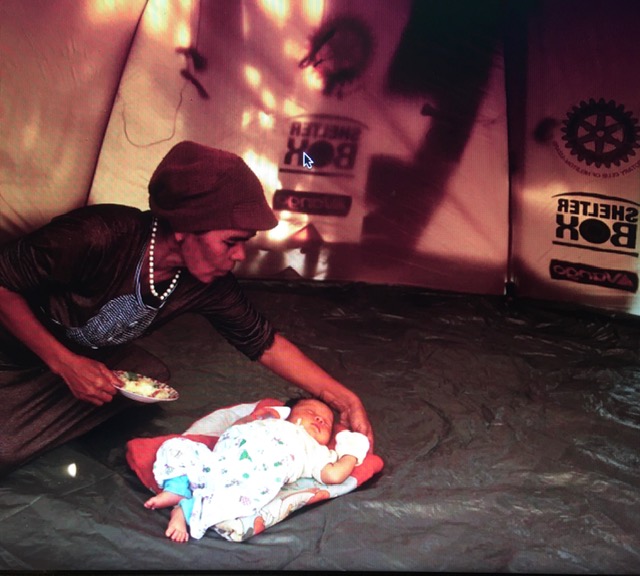Amid catastrophes produced by nature and mankind’s cruelest impulses, ShelterBox teams of volunteers rush forward. From the earthquake that killed hundreds of people in Ecuador in April to the continuing refugee trail out of the Middle East, ShelterBox has sent aid to help hundreds of thousands of displaced households.
 |
Notable missions since the disaster relief charity was founded 16 years ago include the 2004 Indian Ocean tsunami and the 2010 quake in Haiti, where some 300,000 tents were supplied. In the United States, ShelterBoxes were delivered to those displaced by Hurricane Katrina in New Orleans, Sandy in New York and New Jersey, and tornadoes in the Midwest.
 |
In July, RI and ShelterBox announced the extension of a three-year project partnership to provide emergency shelter, a natural fit according to both organizations. Rotarians, along with Rotaractors and Interactors, have contributed $48 million, or 40 percent of ShelterBox’s revenue, from the UK-based nonprofit’s inception in 2000 through 2015. (ShelterBox was founded by a Rotarian but is independent of Rotary International and The Rotary Foundation.)
ShelterBoxes contain family-sized tents specially designed to withstand the elements and provide people with temporary shelter until they are able to start the process of rebuilding a home.
The signature green boxes feature Rotary’s logo and are adapted to fit the emergency before being transported on scant notice. Most boxes include family-size tents, though the contents differ depending on the disaster and climate. Many are packed with solar lights, water storage and purification equipment, thermal blankets, and cooking utensils. Depending on need, the organization may deliver ShelterKits, smaller aid packages that include tools, ropes, and heavy tarpaulins used to provide emergency shelter and repair damaged structures.
 |
“The partnership between Rotary and ShelterBox has provided a place of refuge to people facing some of the most difficult and uncertain moments in their lives,” says RI General Secretary John Hewko. Tapping Rotary’s strengths, not just its funds, has nurtured ShelterBox, adds its chief executive, Chris Warham.